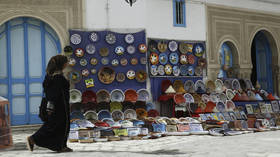Egyptian inflation skyrockets

Annual urban inflation in Egypt jumped to 32.7% in March, its highest level since 2017, data from the national statistics agency CAPMAS showed on Monday. The increase has been driven by a sharp rise in food prices and the devaluation of the Egyptian pound.
While consumer prices grew less than economists expected, inflation was still higher than the 31.9% recorded in February, led by a 62.9% rise in food and beverage costs.
On a monthly basis, urban inflation growth slowed to 2.7% in March, down from 6.5% in February and 4.7% in January.
Soaring prices are attributed to a plunge in the national currency following a series of devaluations over the last year. Surging seasonal demand during the month of Ramadan, high fuel prices and a shortage of raw materials, as well as a lack of foreign currency were also blamed for soaring consumer prices.
A major importer of commodities, Egypt has devalued its currency three times since last March, further lifting the costs of most foreign goods.
Skyrocketing inflation has also dealt a blow to Egyptian households as half of its 104 million people are now living near or below the poverty line.
In an effort to contain prices, the Egyptian central bank raised interest rates in March by 200 basis points, although analysts have doubted that the measure will bring immediate relief.
As pressure on the country’s financial system mounts, authorities are seeking ways to boost foreign investment, including plans to sell stakes in a number of domestic companies.
For more stories on economy & finance visit RT's business section












